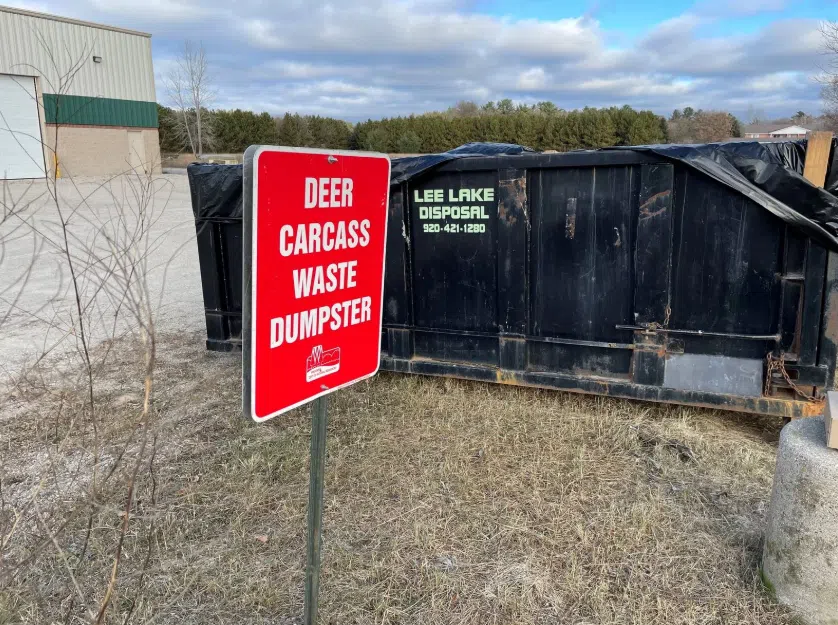
Deer carcass waste dumpster at the Peshtigo DNR office, November 27, 2024. PC: Fox 11 Online
PESHTIGO, WI (WTAQ-WLUK) — As Deer Hunt 20-24 rolls past its half-way mark, many taking to the field are reminded to help stop the spread of the deadly deer condition, Chronic Wasting Disease.
Scientists say CWD is fatal, and highly contagious. It impacts the nervous systems of deer, elk, moose, and caribou, so properly disposing of deer carcasses is key.
“A lot of times, the hunter may not know where they can go deposit their carcasses. We’ve had some that have ended up on state properties, state lands, boat landings,” said Kassaundra Kiehnau, DNR Wildlife Biologist-Technician.
Kassaundra Kiehnau says 10 dumpsters are deployed at various locations around Oconto and Marinette Counties. She says the partnership between the Department of Natural Resources and the Oconto County Sportsmen’s Alliance includes an opportunity for hunters to donate deer hides as well.
“Since we’re offering that option to hunters to donate their hide right next to a dumpster, where they’d be dropping off the carcass, it actually kind of allows them to think about what they’re doing, and they’re actually adding to the donation,” she said.
State Deer Program Specialist Jeff Pritzl says hunters should continue to test for CWD, and contact the department if they see deer that are sick.
“Those reports all go into a data base that again, track the trends, of frequency that we’re seeing and how this plays out across the state. So good opportunity for hunters to be citizen scientists, while they’re out participating in the gun-deer season,” said Jeff Pritzl, DNR State Deer Program Specialist.
Meanwhile, Kassaundra Kiehnau says the big bins are expected to remain on the landscape at least through Sunday.
“The dumpsters, it’s the only way to guarantee that a deer carcass will end up in a landfill. CWD is our concern, and we’re trying to prevent, I guess you would say, if any positive carcass would remain out on the landscape, it would end up in a landfill,” she said.
Health officials recommend people should not eat meat from a deer that tests positive for CWD.
According to the Centers for Disease Control, there have been no confirmed cases of CWD being transferred to humans.




Comments